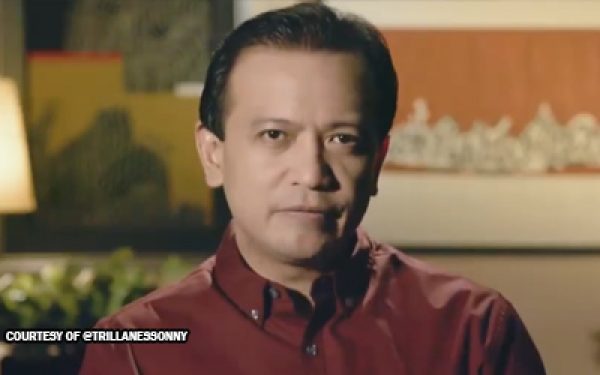Former Senator Antonio Trillanes IV filed plunder and graft cases against former President Rodrigo “Digong” Duterte and Senator Christopher “Bong” Go at the Office of the Ombudsman this Tuesday.
According to Trillanes, Go’s father, who owns CLTG Builders, and the Alfrego Builders owned by the senator’s brother allegedly obtained billions of pesos worth of government contracts during the Duterte administration.
He stated that CLTG Builders entered into a joint venture with St. Gerrard Construction, owned by the Discaya family, to secure contracts worth P816 million.
CLTG and Alfrego Builders also reportedly obtained an estimated P6.95 billion worth of government projects from 2016 to the present.
“The main plunderer here is Bong Go because he is the central figure connecting his father and brother, and his relationship with Duterte enabled this,” Trillanes insisted.
The filed cases include violations of the Plunder Law, Anti-Graft and Corrupt Practices Act, and the Code of Conduct for Public Officials.
“This started when Duterte was still mayor until he became president. We all know that Bong Go and Duterte are closely connected, so he cannot deny that this was not influenced,” Trillanes further explained.
Senator Go considers the case filed against him by Trillanes at the Ombudsman as a diversionary tactic.
“This is a diversionary tactic to divert the public’s attention from the real issues,” Go stated in a press conference.
According to Go, Trillanes’ accusations are wrong, and if he is truly serious about fighting corruption, the former lawmaker should file cases against the real corrupt individuals, contractors, and financiers whose funds, possibly used for propaganda, might even come from ‘ghost’ and substandard flood control projects.
Office of the Ombudsman
The Office of the Ombudsman is an independent, impartial public body that investigates citizen complaints against governmental agencies and maladministration. The modern concept originated in Sweden in 1809, and similar institutions have since been established worldwide to protect citizens’ rights and improve public service. Its core function is to ensure government accountability, fairness, and transparency by reviewing administrative actions.
Plunder Law
“Plunder Law” does not refer to a specific place or cultural site. It is a legal term for a principle that allows a conquering force to seize property from an enemy during wartime. Historically, this concept has been a feature of various conflicts but is now largely prohibited by modern international law, such as the Hague and Geneva Conventions.
Anti-Graft and Corrupt Practices Act
The Anti-Graft and Corrupt Practices Act is not a physical place or cultural site, but a landmark Philippine law. It was enacted in 1960 to repress bribery, corruption, and other unethical practices among public officials. This foundational legislation established the standard for integrity in public service and paved the way for the country’s broader anti-corruption legal framework.
Code of Conduct for Public Officials
A “Code of Conduct for Public Officials” is not a physical place but a set of ethical rules and principles designed to ensure integrity, impartiality, and accountability in government. Historically, such codes have evolved from basic oaths of office to comprehensive legal frameworks, often in response to public demand for greater transparency and to prevent corruption. Their purpose is to maintain public trust by defining acceptable behavior for those in public service.


